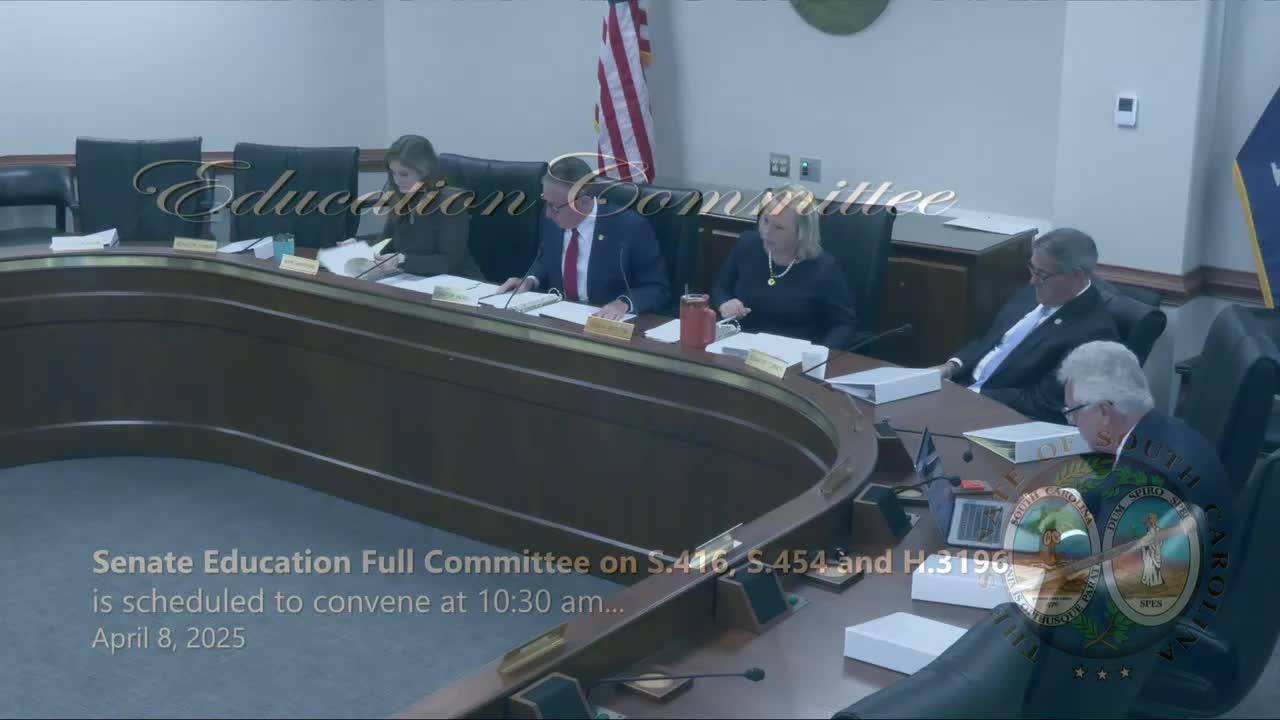Senate Education Committee advances charter school accountability measure
Get AI-powered insights, summaries, and transcripts
Subscribe
Summary
The Senate Education Committee adopted a subcommittee amendment to S 4 54 that tightens oversight of charter authorizers, requires public posting of audits, budgets and management contracts, and gives the Department of Education power to review and, in some cases, terminate authorizers.
The Senate Education Committee on an unspecified date voted to adopt a subcommittee amendment to S 4 54, a bill described in committee as addressing charter school accountability by updating terminology, strengthening authorizer duties and increasing public financial transparency.
The measure would require charter schools to post annual audits, budgets and any executed or amended management-organization contracts on their websites, and would require authorizers to post authorizer budgets showing revenues, expenditures and fees. The Department of Education would annually review authorizer policies and procedures for compliance with state and federal law, issue notices of concern with timelines for corrections, and — in some cases — terminate an authorizer’s registration.
Katie Grinstead, legislative staff who presented the bill, told the committee: “Section 2 of the bill deals with the charter school responsibilities. It updates terminology and would require that a charter school post their annual audit on their website and notify and provide a copy of any executed or amended management organization contracts to the authorizer and post them on their website as well.” Grinstead also explained that the subcommittee amendment added posting of annual budgets and clarified that charter schools must adhere to the same financial laws and regulations required of traditional public schools.
The bill revises several definitions and authorizer duties: it combines terms for different types of charter-management entities into a single “management organization” definition; it adds a definition for replication of charter schools and for nonprofit associations directly affiliated with public institutions of higher learning as potential authorizers; and it treats charter board members as public members under ethics and government accountability rules. The subcommittee amendment changed language about notices of problems to use the term “noncompliance” and restored a 30-day response period for schools that receive written notice of perceived academic or fiscal problems.
The subcommittee amendment removed a provision that would have required authorizers to provide corrective technical assistance at no cost, citing concerns about requiring an authorizer to pay for corrective work when a charter school may have misspent funds or failed to deliver special-education services. The measure also clarifies that an authorizer may retain up to 2% of nonrestricted state appropriations and that public or independent institutions of higher learning may likewise retain or contract to retain 2% of those nonrestricted state appropriations.
Grinstead said the bill would require the Department to develop a streamlined transfer application for schools whose authorizer status is terminated so they could continue operating under a new authorizer. Committee staff noted that terminating the South Carolina Public Charter School District’s authorizing authority would require separate statutory change because that district is a creature of statute.
Committee members thanked subcommittee members and staff for work on the bill, then moved and passed a motion to adopt the committee amendment as the working document. The motion carried with voice vote; the committee recorded proxies voting aye for Senators Johnson, Young, Elliot, Cash, Rankin and Peeler.
The committee also considered two further amendments offered before sending the bill forward: an anti–conflict-of-interest amendment that would bar individuals whose spouse, immediate family member or the individual is a full or part owner, principal or employee of a management organization from serving on a charter-school or authorizer governing board; and a definitional amendment to clarify the residency and instructional requirements for virtual charter schools, specifying at least 25% in-person instruction in core areas per regulation 43 6 0 1 and that students attending virtual charter schools must be South Carolina residents as defined in section 59 63 30. Both amendments were adopted by the committee.
The committee chair indicated the subcommittee amendment, as amended, would be sent to the floor for further consideration.
